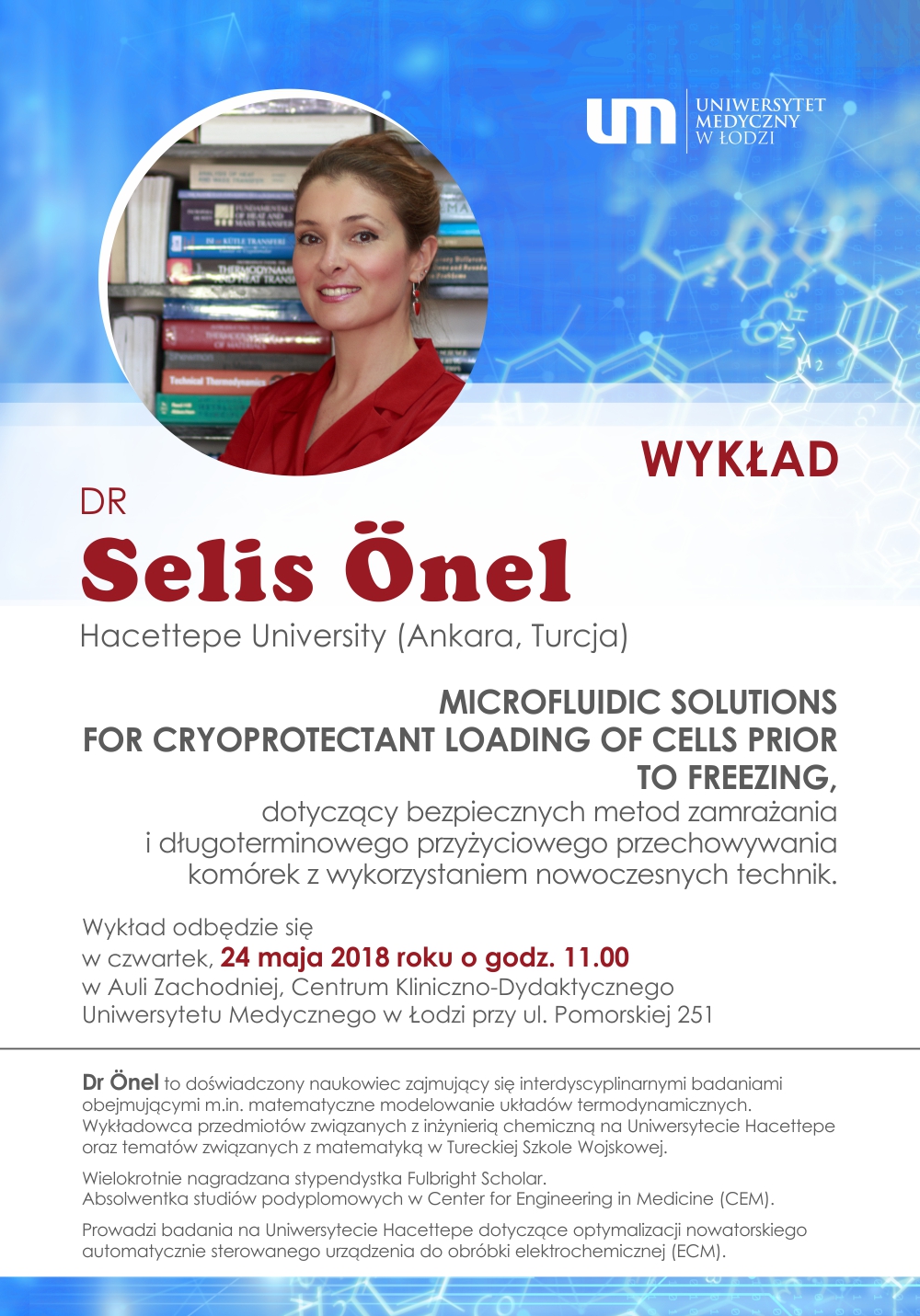Zaproszenie na wykład dr Selis Onel z Hacettepe University
Serdecznie zapraszamy na wykład „Microfluidic solutions for cryoprotectant loading of cells prior to freezing”, który poprowadzi dr Selis Onel z Hacettepe University w Turcji. Spotkanie dotyczyć będzie bezpiecznych metod zamrażania i długoterminowego przyżyciowego przechowywania komórek z wykorzystaniem nowoczesnych technik.
Dr Selis Onel to wielokrotnie nagradzany naukowiec, na co dzień zajmuje się między innymi prowadzeniem badań, dotyczących optymalizacji nowatorskiego urządzenia do obróbki elektrochemicznej. Jest również wykładowcą przedmiotów związanych z inżynierią chemiczną na Uniwersytecie Hacettepen.
Spotkanie odbędzie się 24 maja o godzinie 11.00 w Auli Zachodniej Centrum Kliniczno-Dydaktycznego Uniwersytetu Medycznego w Łodzi przy ulicy Pomorskiej 251.
Microfluidic Solutions for Cryoprotectant Loading of Cells Prior to Freezing
Selis Önel, PhD
Associate Professor, Dept. of Chemical Eng., Hacettepe University, Ankara, Turkey
Fulbright Scholar, Center for Engineering in Medicine, Harvard Medical School / Massachusetts General Hospital, Boston, MA
Long-term storage of critical mammalian cells is vital for medical and pharmaceutical industries. Crypreservation is the preferred method, but complex due to atypical response of the cell to osmotic changes and the ~80 % vol. water content prone to crystallization. Carbohydrate based cryoprotectant agents (CPAs) are added to accommodate for the ultrafast cooling rates required for vitrification and to prevent intra- and extra-cellular crystallization by increasing the glass transition temperature at the cost of toxicity. Preconcentration of cells in dehydrating picoliter aqueous droplets has proven to be a promising method by reducing the exposure time of cells to CPAs, eliminating the multistep CPA loading-diluting procedures, and avoiding the mechanical and osmotic stresses caused by large concentration differences. We developed a novel micro-channel thermo-fluidic device to control and improve the rate of dehydration in biomaterials. The device allows for producing uniform picoliter aqueous droplets in a mobile organic phase in continuous flow and encapsulation of one or more cells per droplet. The integration of fluidic and thermal phenomena with MEMS technologies for preconcentration of sensitive cells has shown to be a solution to eliminate injury caused by toxic concentrations of CPA and multi-step loading-unloading procedures.


















